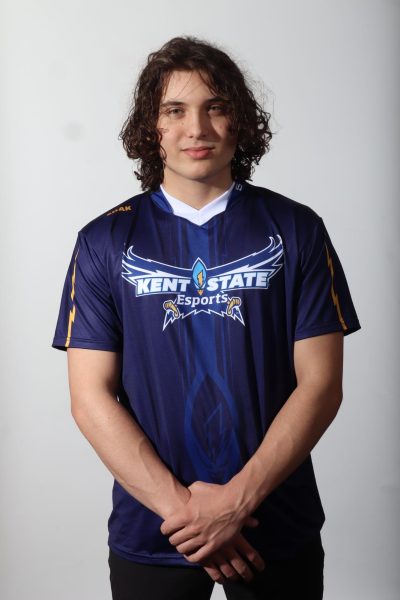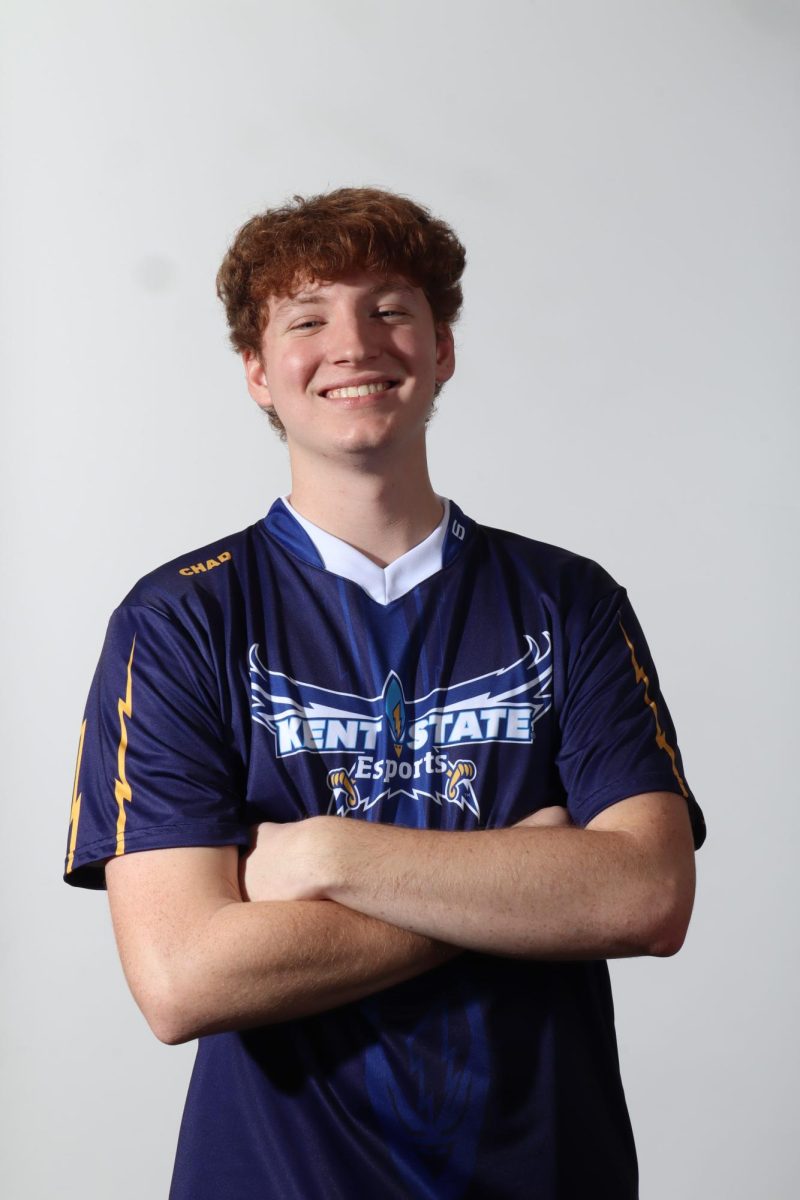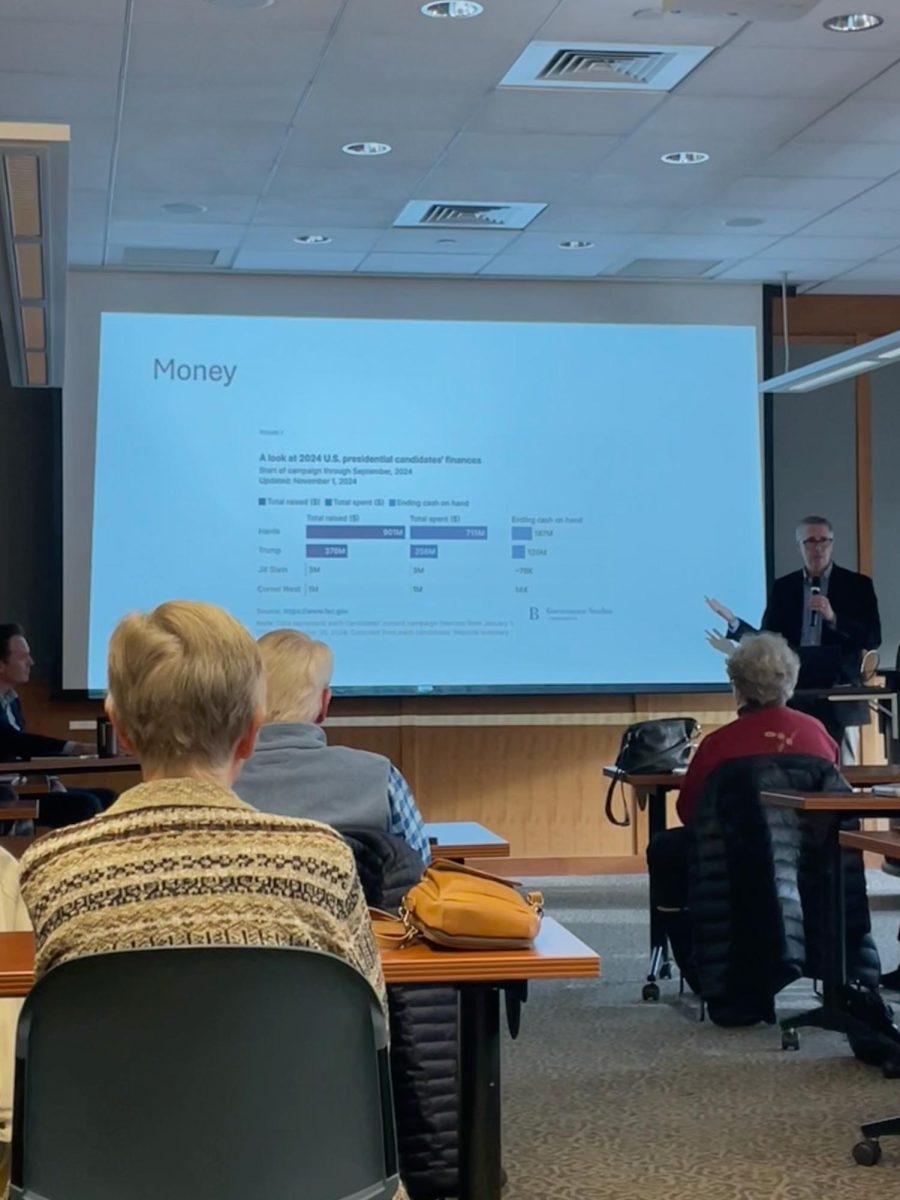When Charlie Hughes, a senior computer engineering technology major, looks out at the fans watching his game and holding up signs cheering him and the other players on, he feels motivated to do his best. He is reminded of the hard work it takes to be a part of an esports team.
Last year, Hughes had tried out but did not make it onto the esports team on campus.
“Our team coach runs the tryouts and has students trying out play four to six games,” he said. “If you do well, you make it through to the next round, where you play more games, and at the end of it all, the coach decides who will make the team, which consists of six players. Five players are the main team, and the sixth is the backup in case someone can’t play.”
Hughes made it through the initial stages of trying out last fall but didn’t make the team roster.
“Two players on the roster ended up not being eligible, so basically, they called me in and gave me a final chance at making one of the two spots,” he said. “The team last year liked me and decided I would be the fifth spot on the main roster. We now have another player on the main roster, but he was a sub last year. That’s kind of how the process works.”
Players in the arena cheer and clap their hands as Luke Rohloff, a senior professional flight major, won the match he was playing in.

“It’s an exhilarating feeling to win matches,” he said. “It’s more of a rush than just playing at home because you’re part of a team here and helping the team win and advance over other teams.”
The VALORANT team began its fall season the first week of September and will play matches against other teams from different universities until the playoffs start in December.
The team’s fall season is its regular season, and they play matches every week while in their arena on the second floor of the campus library.
“Only about eight teams make it to the playoffs, and there are 14 teams in the regular season,” Rohloff said. “Information on the opposing teams is published online, so we can look it up beforehand and research the team we’re going to be playing to prepare ourselves for the upcoming game better.”
He said the team doesn’t have a regular spring season but instead plays separate individual tournaments occasionally. The spring is when two other esports teams, Overwatch and League of Legends, have their regular season.
Before they play matches against other teams during the fall season, they have a small routine where they do a warm-up match beforehand and then jump right into the game, Hughes said.
“We don’t have a big routine before we play a match against another team,” he said, “but we have practices a few days a week. We play the game regularly outside of school, so our practice hours are mainly just us getting time to play with other team members instead of just friends like at home.”
An esports varsity program launched in the fall of 2018 and has continued to grow, even adding scholarships for players.
“I think esports is continuing to become recognized as a legitimate sports team,” he said. “Students and fans support us by watching in person or over Twitch. You can get full rides from certain schools, and players can earn scholarships by doing something they love.”
The esports channel on Twitch allows people to tune in to the matches from their homes, Hughes said. The league they are in with other universities for the season also has a Twitch stream, but all of the different teams alternate getting streamed each week.
“It’s cool seeing all the people that come out to support us or watch our stream,” he said. “We’re like any other sports team where fans can come to games and cheer on the players. It’s a great environment.”
The esports schedule is posted on the team’s Facebook page and shows the dates the VALORANT and Rocket League teams play up until December before the playoffs start.
Molly Hoffer is digital tech. Contact her at [email protected].





